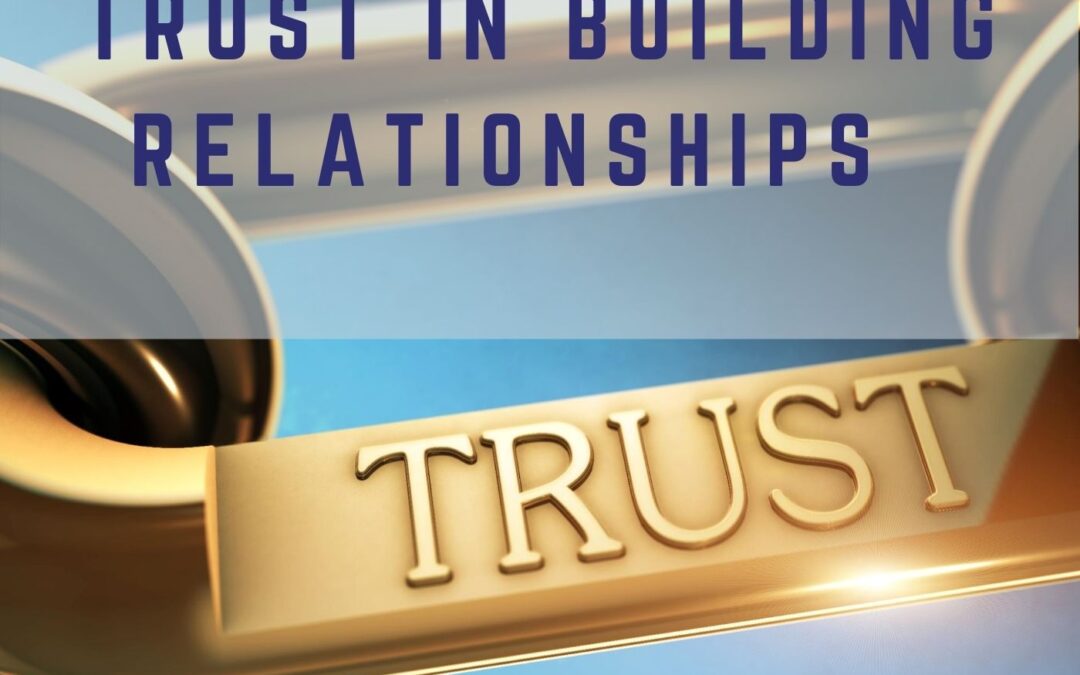In the middle of this COVID pandemic, it is becoming apparent that trust is really important.
Julia starts by discussing the Edelman Barometer which measures trust usually on a yearly basis.
At the beginning of 2020, the Edelman barometer was showing trust at some of the lowest levels. And this is trust with governments, NGOs and businesses. At the start of the year society had higher levels of trust with business than with government organisations with the media not scoring high.
Trust has a magnetic quality and can make the difference in business.
A recent second Edelman survey in April during COVID-19 there was a reversal with businesses coming out worse on the trust scale and governments came out best.
Perhaps there is little bit of a paradox there maybe because we’ve been in a situation where people have been frightened of being under threat. We have looked to the government to make some decisions and so far the decisions have been pretty decent. And as a result, people are now beginning to trust the government that they could actually do something well, whereas businesses ironically, haven’t done such a great job and their trust levels have dropped. Julia and Andrew muse on whether it is because some people have had experience of poor leadership within the businesses they’ve been working for, and how those businesses have been dealing with furloughing employees etc.
Then they move on to discuss why it is important to have trust in yourself to build confidence in the decision making process. How to connect with people and build up trustworthiness.
As always horses play an important role in the work that the duo do and mention is made of the Trust Mirror mentioned in Julia’s book Unbridled Success linking back to the way horses think and drawing parallels.
Andrew recalls Gloria Barczak from Northeastern University, in the US. She talks about how teams , build trust. There are two ways the effective and the cognitive.
This leads on to building gravitas and why it is important and how to develop and use it.
Trust is such an important commodity that John Maxwell sees it as a bit of a piggy bank, putting money in the piggy bank, aka trust in the piggy bank. But break that trust and you just shatter everything. So that’s why we’re always talking about how it can take a long time to build trust but that it’s quick to break.
Which leads on to Patrick Lencioni and his Five Dysfunctions of a Team, the first thing is a lack of trust. And if there’s a lack of trust, then just everything breaks down.
One simple way to build and maintain trust in the workplace is the use of contracting so everyone understands what is required and when.
Finally it’s about sharing stories because we all relate to other people we build trust when we know more about our colleagues. If you are able to share some personal details or snippets about your life, it just makes you more relatable to other people. And then you’ve now got some shared experiences and when you’ve got those shared experiences, now you’ve got something to talk about. t’s a great way to build trust quite quickly.
Trustworthiness cannot be faked or copied. It’s the fundamental underpinning of everything in business and Andrew follows Janet Murray who talks about building trust and building client bases. People won’t buy from strangers; most people need at least seven or eight touch points before they then buy.
To conclude the duo quote from Stephen R. Covey’s book, The Speed Of Trust: ’without trust relationships and businesses falter.’
Which sums up so well this podcast episode. Without trust, there is no business there are no relationships with people, and everything is going to start struggling. Trust really underpins everything that we do.
Show Notes:
Here are the highlights from this episode
- The Edelman Barometer (1:00) https://www.edelman.co.uk/research/edelman-trust-barometer-2020
- Trust in yourself (2:56)
- Trust Mirror (4:15) https://www.thechangemakergroup.com/post/2018/01/15/the-consequences-of-lack-of-trust
- Trust and the horses making it tangible (4:48)
- Team Trust Gloria Barczak https://onlinelibrary.wiley.com/doi/full/10.1111/j.1467-8691.2010.00574.x?casa_token=dOHUqFs-Jy8AAAAA%3AJ8GF0B8U9SAqCRl__PCkumeSlSgtUn8VdOH3ijUUm_uMKQTWo7RTn21cBdkLLcfjOBUZrc79JlwDfQ
- Building Authenticity through body language (9:00)
- John Maxwell Five Levels of Leadership (10:20) https://s3.amazonaws.com/scschoolfiles/725/5_levels_of_leadership-themaxwellebs.pdf
- Patrick Lencioni Five Dysfunctions of a Team (13:45) https://www.amazon.co.uk/Five-Dysfunctions-Team-Leadership-Lencioni/dp/0787960756
- Contracting in the workplace (15:14)
- Janet Murray (20:15) https://www.janetmurray.co.uk/
- Steven R Covey The Speed of Trust (20:47) https://www.amazon.co.uk/dp/B00371V7VK/ref=dp-kindle-redirect?_encoding=UTF8&btkr=1

Julia Felton (aka The Business Wrangler) is the founder of Business HorsePower. Business leaders, entrepreneurs and executives hire her to accelerate their business performance by harnessing the energy of their people to work more collaboratively together. By aligning purpose with actions the team achieves exponential results as everyone starts pulling in the same direction.
Julia believes that business is a force for good and through designing purpose-driven businesses that leverage the laws of nature, and the herd, you can create businesses founded on the principles of connection, collaboration and community that make a significant impact in the world.

